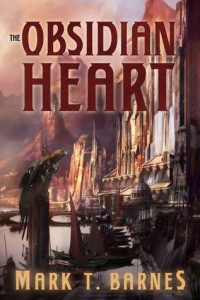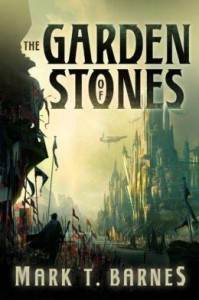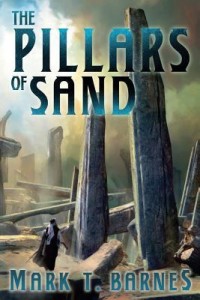 Format read:
Format read: ebook provided by NetGalley
Formats available: paperback, ebook
Genre: epic fantasy
Series: Echoes of Empire #2
Length: 438 pages
Publisher: 47North
Date Released: October 15, 2013
Purchasing Info: Author’s Website,
Publisher’s Website,
Goodreads,
Amazon,
Barnes & Noble,
Book Depository
A plot to overthrow the Shrīanese Federation has been quashed, but the bloody rebellion is far from over…and the struggle to survive is just beginning.
Warrior-mage Indris grows weary in his failed attempts to thwart the political machinations of Corajidin, and faces the possibility of imprisonment upon his return to his homeland. Moreover, Indris’s desire for Corajidin’s daughter, Mari, is strong. Can he choose between his duty and his desire…and at what cost?
Left alienated from her House, Mari is torn between the opposing forces of her family and her country—especially now that she’s been offered the position of Knight-Colonel of the Feyassin, the elite royal guards whose legacy reaches back to the days of the Awakened Empire. As the tensions rise, she must decide if her future is with Indris, with her family, or in a direction not yet foreseen.
As he awaits trial for his crimes, Corajidin confronts the good and evil within himself. Does he seek redemption for his cruel deeds, or does he indebt himself further to the enigmatic forces that have promised him success, and granted him a reprieve from death? What is more important: his ambition, regaining the love stolen from him, or his soul?
My Review:
 Just as with The Garden of Stones, the first book in the Echoes of Empire series, The Obsidian Heart left me with a terrible “book hangover”. When I turned the last page, I was just not ready to step away from this world. While it’s definitely not a place I’d want to live (at least at this moment in the story!) Shrian is certainly a place filled with compelling stories.
Just as with The Garden of Stones, the first book in the Echoes of Empire series, The Obsidian Heart left me with a terrible “book hangover”. When I turned the last page, I was just not ready to step away from this world. While it’s definitely not a place I’d want to live (at least at this moment in the story!) Shrian is certainly a place filled with compelling stories.
Even though The Obsidian Heart begins with a recap of previous events from the first book, the story as a whole owes some of its intense immersiveness to the way that the reader is dropped into a history that feels like it has gone one for centuries, and will continue after the book is closed, whether our heroes survive their particular tale or not.
The weight of Shrian’s past helps the reader to sink inside the tale.
And the tale that continues from The Garden of Stones is both epic and deeply personal. Lord Corajidin continues on his mad quest to fulfill the destiny he saw in a vision, a vision that told him that he would become the Emperor of a new Awakened Empire, and lead his people back to their former greatness.
But Corajidin’s vision has convinced him that the glory he has foreseen justify any means necessary to come to fruition; even means that his people would consider anathema. Not just political assassinations by the score (the history has precedents for that!) but by dealing with the demon and death-bringing witches of the dreadful Drear.
Corajidin reminds this reader all too much of Shakespeare’s Macbeth; he creates the conditions that the witches foretold because of the foretelling. He doesn’t see that the path his self-fulfilling prophecy has led him down will ruin him and all he thought he fought for in the end.
There are three point-of-view characters in The Obsidian Heart. One is Corajidin, voraciously chewing up everything and everyone in his path to achieve the destiny he believes should be his. Or perhaps has been led to believe to be his. I wonder.
Indris shows us a different side to Corajidin’s dreams of a new empire. Indris is a warrior-mage of the Seq. His order was born two millennia ago to fight the witches that Corajidin is bringing back to prominence. He wants to stem the tide of death and put the evil creatures back in the fell places where Corajidin’s allies found them.
But Indris, as we saw in The Garden of Stones, is also an heir of one of the rival Houses to Corajidin. He could take the throne himself, or at least return to being a leader of his own House. While his only desire is to be his own man and follow his own agenda, too many factions have plans of their own for him, and none of those plans are in Indris’ best interest. Even worse, Indris believes that those plans are not in the empire’s best interests.
While Indris wants to fight Corajidin, there are too many forces arrayed against him who try to force him, whether by physical threats or magical torment, to go down the path of their choosing.
The last perspective belongs to Mari, the warrior-poet daughter of Corajidin. She has never fit into her father’s plans for her, but there was a part of him that enjoyed her defiant spirit. But she believes that her father has gone mad as well as evil, and she betrayed him. Her family has chosen to believe that her betrayal was caused by her affair with Indris, and not by the convictions of her own mind. They want her back within the family fold, whether she wants to be there or not.
The Obsidian Heart is a story built of many overlapping layers. Corajidin’s manipulations to bring about his new Awakened Empire push the action forward, as Indris and Mari fight to remain together and to save what they can. The politics and the magic constructs that underlie the war make for fascinating reader, as each player follows an agenda that impacts the others.
As this installment of the story concludes, one is left breathless, wondering how much more can possibly go wrong for the forces of good. Always a dangerous question, but one that leaves the reader begging for more.
Escape Rating A: The Obsidian Heart is definitely the middle-book in this trilogy. As the story progresses, the situation gets darker and darker for Indris and Mari.
Shrian is a dark and dangerous place. Every person that we meet has their own agenda, and it’s almost always hidden. Indris and Mari spend a lot of this chapter of the story preventing other people’s nefarious plans, both for the empire and for themselves. The entire world they know seems to be arrayed against them. While they are not the only people working towards something like the greater good, they seem to be the required element that pushes so many people to get off their self-satisfied asses and do something about it.
The only thing required for evil to flourish is for good people to do nothing.
And so many of the plots regarding Indris’ and Mari’s potential futures are worse than nothing. Too many people are using the chaos to forward their own agendas, and they are more than willing to block our heroes from taking forward action.
The political backstabbing and level of assassinations and faked enemies that takes place in order to make Corajidin’s vision come to fruition reads like the layers upon layers of plotting in Kushiel’s Dart. It also reminds me of the original Dune, in that feeling that the machinations are part of a Great Game of politics and empires that has been going on since long before the current story; where this is but a chapter in some greater history.
But the downward progression is reminiscent of one of Murphy’s lesser known laws: Things are always darkest just before they turn completely black. The Obsidian Heart is rather like The Empire Strikes Back, in that the story ends on a breathless down-stroke.
 I’m almost sorry that I didn’t wait until May, when the third and final chapter, The Pillars of Sand, is due to be released. Because I want to know what happens next, and I want to know now. But The Obsidian Heart was every bit as amazing as The Garden of Stones.
I’m almost sorry that I didn’t wait until May, when the third and final chapter, The Pillars of Sand, is due to be released. Because I want to know what happens next, and I want to know now. But The Obsidian Heart was every bit as amazing as The Garden of Stones.
***FTC Disclaimer: Most books reviewed on this site have been provided free of charge by the publisher, author or publicist. Some books we have purchased with our own money or borrowed from a public library and will be noted as such. Any links to places to purchase books are provided as a convenience, and do not serve as an endorsement by this blog. All reviews are the true and honest opinion of the blogger reviewing the book. The method of acquiring the book does not have a bearing on the content of the review.


















